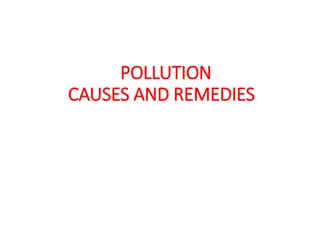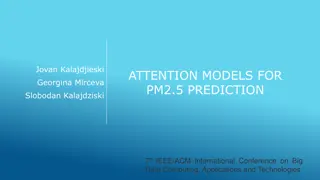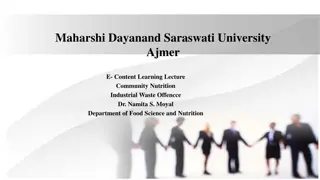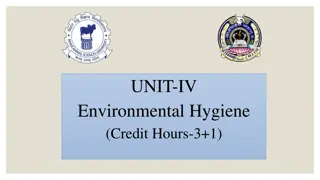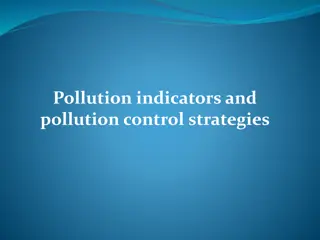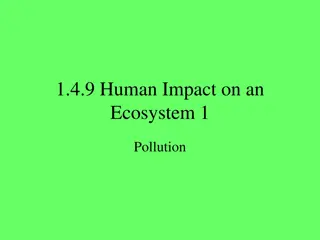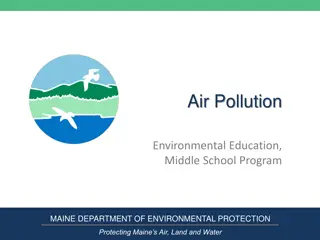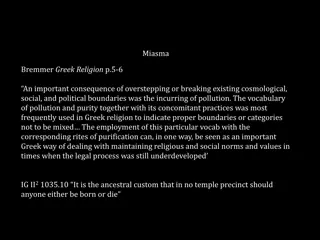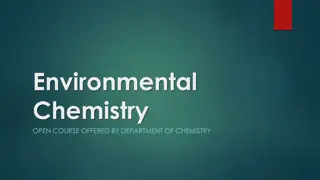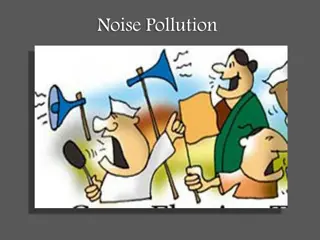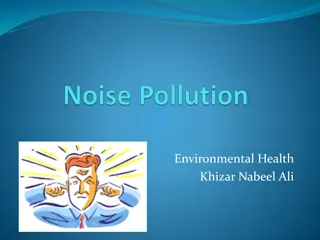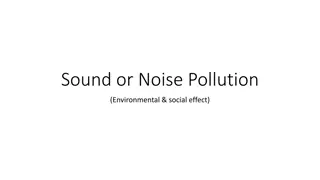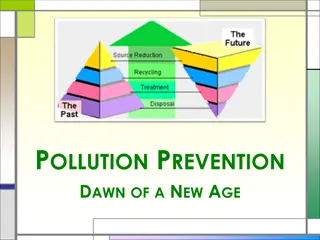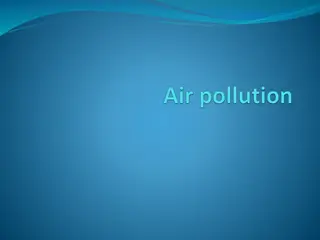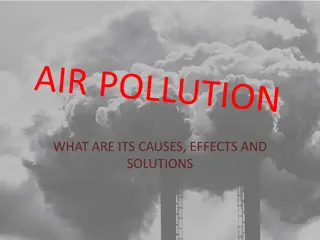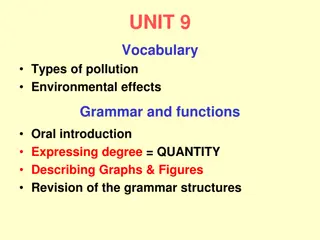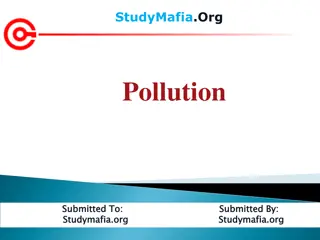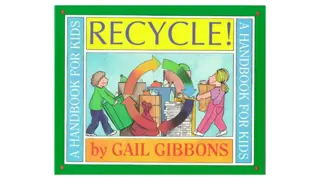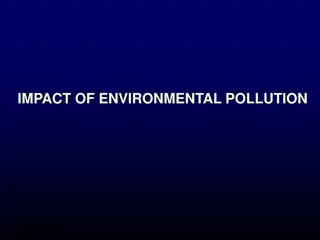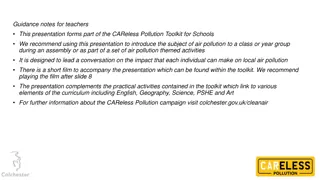Understanding Different Types of Pollution and Ways to Combat Them
Pollution comes in various forms such as water, noise, air, thermal, and land pollution. Each type has specific sources and impacts. Air pollution, caused by industrial activities and burning of fossil fuels, emits harmful substances into the air. Water pollution occurs due to the discharge of chemicals, heavy metals, and plastics into water bodies. Noise pollution from industrial machinery can have negative health effects. Land pollution is closely linked to water pollution through the dumping of industrial wastes into the soil. Nuclear waste also poses health risks. To combat pollution, various measures can be taken, such as using equipment to control emissions in industries and implementing water treatment processes like recycling and rainwater harvesting.
Download Presentation

Please find below an Image/Link to download the presentation.
The content on the website is provided AS IS for your information and personal use only. It may not be sold, licensed, or shared on other websites without obtaining consent from the author. Download presentation by click this link. If you encounter any issues during the download, it is possible that the publisher has removed the file from their server.
E N D
Presentation Transcript
Types of Pollution Water Noise Air Thermal Land
Air Pollution Smoke emitted by chemical and paper factories, brick kilns, refineries and smelting plants, and burning of fossil fuels in factories that ignore pollution norms. Air-borne particulate materials contain both solid and liquid particles like dust, sprays, mist and smoke.
Major water pollutants are dyes, detergents, acids and salts. Heavy metals like lead and mercury, pesticides and fertilizers and synthetic chemicals with carbon, plastics and rubber, etc. discharged into the water bodies without treatment pollute these water bodies.
The generators, compressors, machines, furnaces, looms, exhaust fans, etc. used by industries create a lot of noise. Noise can raise blood pressure and can have physiological effects as well.
Land and water pollution are closely related. Dumping of industrial wastes especially glass, harmful chemicals, industrial effluents, packing, salts and garbage into the soil.
Wastes from nuclear power plants, nuclear and weapon production facilities cause cancer and birth defects.
Particulate matter in the air can be reduced by fitting smoke stacks to factories with fabric filters, electrostatic precipitators etc. Equipment s to control aerosol emissions can be used in industries, e.g., electrostatic precipitators, scrubbers and inertial separators. Smoke can be reduced by using oil or gas instead of coal in factories.
Minimizing the use of water for processing by reusing and recycling. Harvesting of rain-water to meet water requirements of industries and other domestic purposes. Treating hot water and effluents before releasing them into rivers and ponds in the following ways: Primary treatment by mechanical means such as screening, grinding, flocculation and sedimentation. Secondary treatment by biological process. Tertiary treatment by biological, chemical and physical processes. This involves recycling of waste water.
Minimizing the use of water for processing by reusing and recycling in two or more successive stages. Harvesting of rain water to meet domestic and industrial water requirements. Treating hot water and effluents before releasing them into rivers and ponds. Particulate matter in the air can be reduced by fitting smoke to factories with electrostatic precipitators, fabric filters, scrubbers and inertial separators. Smoke can be reduced by using oil or gas instead of coal in factories. Machinery and equipments can be fitted with silencers to prevent noise pollution.
Optimum utilization and up-gradation of equipment by adopting latest techniques. Minimizing waste generation by maximising ash utilization. Providing green belts for nurturing ecological balance. Reducing environmental pollution through ash pond management, ash water recycling system and liquid waste management. Ecological monitoring, reviews and online data base management for all its power stations.
Nancy George AECS Mysore


